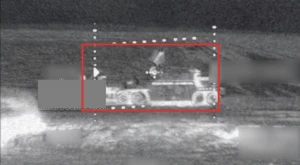
Slovakia's potential shift towards Russia
Slovakia's upcoming parliamentary election on September 30th could see the return of Robert Fico, a pro-Moscow politician who mirrors Viktor Orbán's style in neighboring Hungary. This election carries implications far beyond Slovakia's borders, potentially affecting the European Union and NATO
John Kampfner, an award-winning British author, writes about it in The Guardian.
Slovakia is a testing ground for Russian propaganda
Slovakia has been a strong supporter of Ukraine, being the first NATO country to send fighter jets during Russia's invasion. However, if Fico is elected, there's a risk that Slovakia might pivot towards Vladimir Putin's Russia, Kampfner notes.
This small nation of 5 million people serves as a testing ground for propaganda's power. Last year, a former defense attache was caught trying to pay a Slovak journalist to spread Kremlin propaganda on Ukraine's conflict. This incident went viral when Denník N, a news outlet, exposed it, according to the article.
It is noted that Globsec, a think tank partially funded by the US and EU, published a Vulnerability Index for former communist states. The recent survey shows that Slovakia often stands out. Shockingly, 50% of Slovaks now consider the US a security risk, a sharp increase from a few years ago. Moreover, only 40% of Slovaks believe Russia is primarily responsible for the Ukraine war, the lowest percentage in central and eastern Europe.
Why Fico first left and then came back?
Slovakia's journey since gaining independence in 1993 has been tumultuous. The West once viewed it as a "black hole" in the region due to concerns about its commitment to liberal democracy. However, Slovakia eventually joined NATO and the EU in 2004, seemingly settling its alliances.
Then, Fico, a populist, took the stage. While in power, he criticized the West domestically but adhered to international norms.
“What happened next shook Slovakia to its core,” Kampfner writes. In 2018, investigative journalist Ján Kuciak and his fiancée were murdered while looking into corruption involving Fico's government. This event triggered massive protests, leading to Fico's resignation.
“Hope arose from the horror” with the election of President Zuzana Čaputová in 2019, but Slovakia has faced numerous challenges, including the pandemic, political instability, and economic woes, the publication notes.
Now, Fico is back, adopting a more right-wing stance. He criticizes Ukraine, accuses Čaputová of being an "American agent," and labels arrests of intelligence chiefs as a "police-led coup." There's also a surge in anti-western propaganda on Facebook, supported by Russia.
Fico's party, Smer-SD, leads in the polls, making his return to power likely. Slovakia's complex voting system could lead to intricate coalition building. “What is beyond doubt, however, is that Fico is a major player once again and the politics he espouses is back in fashion. It is a measure of how messy politics has become, and how much faith in liberal democracy has been eroded here in the heart of Europe,” the article concludes.
- News














































